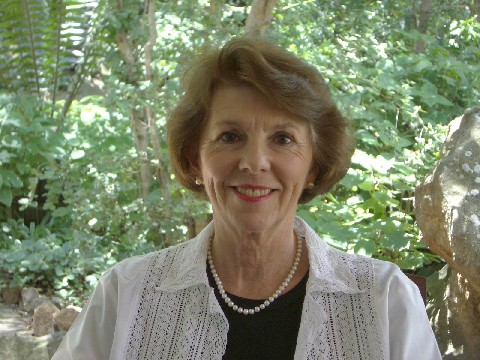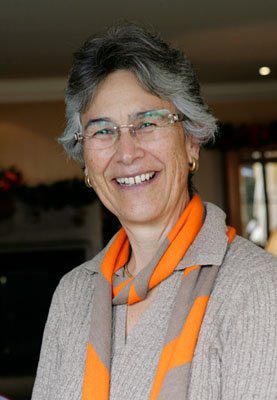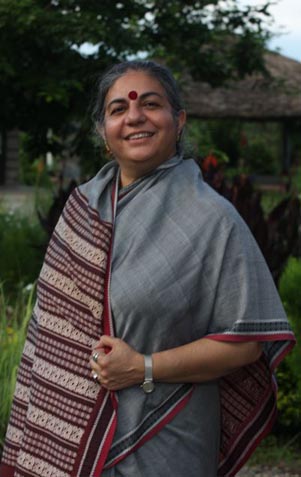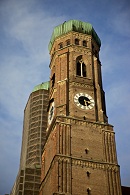Opening Event
01.07.2010
Flyer – English (pdf, 5,887 KB)
Program – English (pdf, 42 KB)
Report – English (pdf, 143 KB)
Residenz München, Residenzstraße 1a
The Rachel Carson Center celebrated its official opening on July 1, 2010. The Opening Event featured keynote addresses from three global experts on environmental issues, as well as welcome remarks from representatives of the Federal Ministry of Education and Research, LMU Munich and the Deutsches Museum. In addition, there were global musical performances and a reception following the event.
Watch a short film from the evening
Picture Gallery
Keynote Speakers:
Jane Carruthers
Yolanda Kakabadse
Vandana Shiva
Jane Carruthers, Chair, Rachel Carson Center Advisory Board and Professor, University of South Africa, Johannesburg, South Africa
 Jane Carruthers, Professor in the Department of History at the University of South Africa, is probably the best known South African environmental historian. She pioneered the discipline in that country and the book based on her doctoral thesis, The Kruger National Park: A Social and Political History, has become a standard reference at many universities worldwide. While she has continued her research into environmental justice and the history of the region’s national parks, her more recent work has expanded into investigating the origins of wildlife management and game ranching, land restitution issues, landscape design and ecology, heritage, cartography and transnational history.
Jane Carruthers, Professor in the Department of History at the University of South Africa, is probably the best known South African environmental historian. She pioneered the discipline in that country and the book based on her doctoral thesis, The Kruger National Park: A Social and Political History, has become a standard reference at many universities worldwide. While she has continued her research into environmental justice and the history of the region’s national parks, her more recent work has expanded into investigating the origins of wildlife management and game ranching, land restitution issues, landscape design and ecology, heritage, cartography and transnational history.
Carruthers is widely published, both in books and in scholarly journals, and is a member of numerous editorial boards and academic journals. She has been awarded a number of prizes and is regularly interviewed on radio and television. She is a past president of the Southern African Historical Society and member of the South Africa National Research Foundation’s History Subject Specialist Panel. In addition, Carruthers has held a number of visiting Fellowships at Australian universities. She is a Fellow of the Royal Society of South Africa (and currently Vice-President) and is also a Fellow of Clare Hall, Cambridge.
Yolanda Kakabadse, President, World Wildlife Foundation International and former Ecuadorian Minister of Environment, Quito, Ecuador
 Yolanda Kakabadse is a well-known environmental activist from Quito, Ecuador. As of January 1, 2010, she is the President of the WWF International. In addition, Kakabadse is the Chair of the Advisory Board of Fundacion Futuro Latinoamericano, a regional NGO dedicated to conflict management in Latin America. She is also a member of the Board of Directors of both the Ford Foundation and the InterAmerican Dialogue; in addition, she is a member of the Environmental Advisory Board of CocaCola and the Holcim Foundation.
Yolanda Kakabadse is a well-known environmental activist from Quito, Ecuador. As of January 1, 2010, she is the President of the WWF International. In addition, Kakabadse is the Chair of the Advisory Board of Fundacion Futuro Latinoamericano, a regional NGO dedicated to conflict management in Latin America. She is also a member of the Board of Directors of both the Ford Foundation and the InterAmerican Dialogue; in addition, she is a member of the Environmental Advisory Board of CocaCola and the Holcim Foundation.
From 1998 to 2000, Kakabadse served as the Ecuadorian Minister of Environment. She was the President of the International Union for the Conservation of Nature (IUCN) from 1996 to 2004. Furthermore, she coordinated civil society participation in the Earth Summit in 1992. Kakabadse has received numerous honorary orders and awards, including the Global 500 Award of UNEP (1992), Golden Ark Order (1991), the Zayed Prize (2001) and a Doctor in Science (ScD) Honoris Causa from the University of East Anglia in 2008.
Vandana Shiva, World Future Councillor and Alternative Nobel Prize Winner, New Delhi, India
 Vandana Shiva is an internationally renowned scholar, activist, and advocate for environmental issues. After receiving her Ph.D. in Quantum Theory Physics in 1977 from the University of Western Ontario, Shiva used her scientific background to conduct interdisciplinary research in science, technology, and environmental policy at the Indian Institute of Science and the Indian Institute of Management in Bangalore. After leaving these institutions in 1982, Shiva became active in a variety of grassroots movements in India, particularly in her own organization, Navdanya, which aims to protect native seeds in India.
Vandana Shiva is an internationally renowned scholar, activist, and advocate for environmental issues. After receiving her Ph.D. in Quantum Theory Physics in 1977 from the University of Western Ontario, Shiva used her scientific background to conduct interdisciplinary research in science, technology, and environmental policy at the Indian Institute of Science and the Indian Institute of Management in Bangalore. After leaving these institutions in 1982, Shiva became active in a variety of grassroots movements in India, particularly in her own organization, Navdanya, which aims to protect native seeds in India.
Shiva has campaigned on behalf of a wide range of issues; she has been an outspoken critic of the 1970s Green Revolution for promoting genetic engineering as a solution to hunger problems. In addition, she actively promotes biodiversity and argues against ‘biopiracy’ – the patenting of indigenous knowledge. She has written 13 books and over 300 published papers on topics ranging from genetically modified food to ecofeminism. Shiva has received a number of international prizes and honors, including the Earth Day International Award in 1993, the Right Livelihood Award (otherwise known as the Alternative Nobel Prize) in 1993, and the Sydney Peace Prize in 2010.


